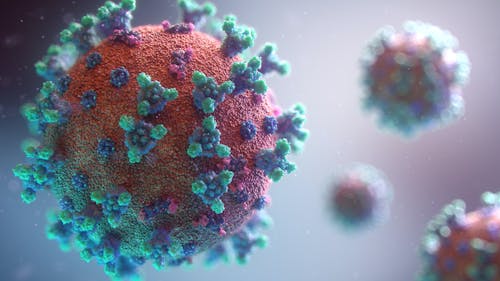Research at Ernest Mario School of Pharmacy finds that antiviral drug can treat coronavirus

A recent study conducted at the Ernest Mario School of Pharmacy has found that an antiviral drug that was developed to treat SARS-CoV-2 is also effective against the newest variants of the coronavirus disease (COVID-19).
Jun Wang, lead author of the study and associate professor of medicinal chemistry, said the study was done to determine whether the mutations in SARS-CoV-2’s main protease, the enzyme that replicates the virus, leads to drug resistance.
Wang said his team and the scientific community are keeping a close watch on the mutations in the main protease as mutations that emerge may lead to drug resistance.
He also said that orally bioavailable antiviral drugs are extremely important in how they can help combat the ongoing spread of the COVID-19 pandemic.
“Patients can take the drug at home at the beginning of the symptoms or when tested positive while being asymptomatic,” Wang said. “This will reduce the chance of progressing to severe infection. It will alleviate the burden for the hospitals.”
He said that as new variants of COVID-19 continue to emerge, vaccines become less effective. Though, antiviral drugs target conserved viral proteins, which make them broadly effective against many variants. The drug can also be a second choice for those who are hesitant to receive vaccines, he said.
Wang said the study identified several mutations in the main protease of SARS-CoV-2, which is the main target of the Pfizer drug, Paxlovid.
SARS-CoV-2 relies on a variety of types of proteases in order to produce functional polyproteins — the chains of proteins that make up the virus, according to the study.
Wang said that the scientific community monitors drug resistance very carefully because SARS-CoV-2 is particularly vulnerable to main protease inhibitors.
“The predominant main protease mutation in the SARS-CoV-2 Omicron variant is P132H,” he said. “We found that the main protease P132H mutant remains sensitive to Paxlovid, meaning that Paxlovid can still be used to treat patients infected with the omicron variant.”
The study found that it is important to observe future mutations and their properties in order to predict future drug resistance. SARS-CoV-2 has demonstrated to researchers that many factors may contribute to the rapid production of drug-resistant characteristics in future disease variants, according to the study.
Wang said that his research group has made various contributions to the furthering of research on SARS-CoV-2 antivirals, including having helped Pfizer test their antiviral drug candidates at the beginning of the pandemic as a scientific partner.
“We are designing newer generations of SARS-CoV-2 antivirals with improved potency and safety,” he said. “Our study ensured the public that Pfizer's oral drug PAXLOVID is still accountable for the treatment of omicron infection.”
Wang also said his research group will continue to study the structure, function and mechanisms of SARS-CoV-2s viral proteins. In addition, the group hopes to advance its antiviral drugs to clinics.
“Science is powerful, and what you learn in school can make a real-world impact,” he said.



